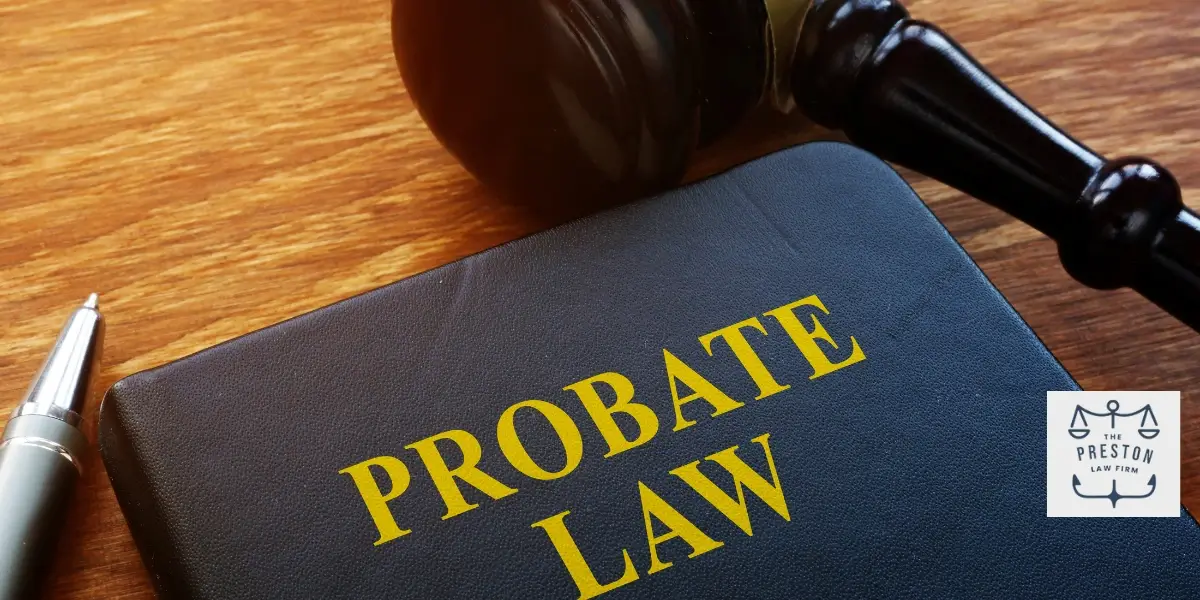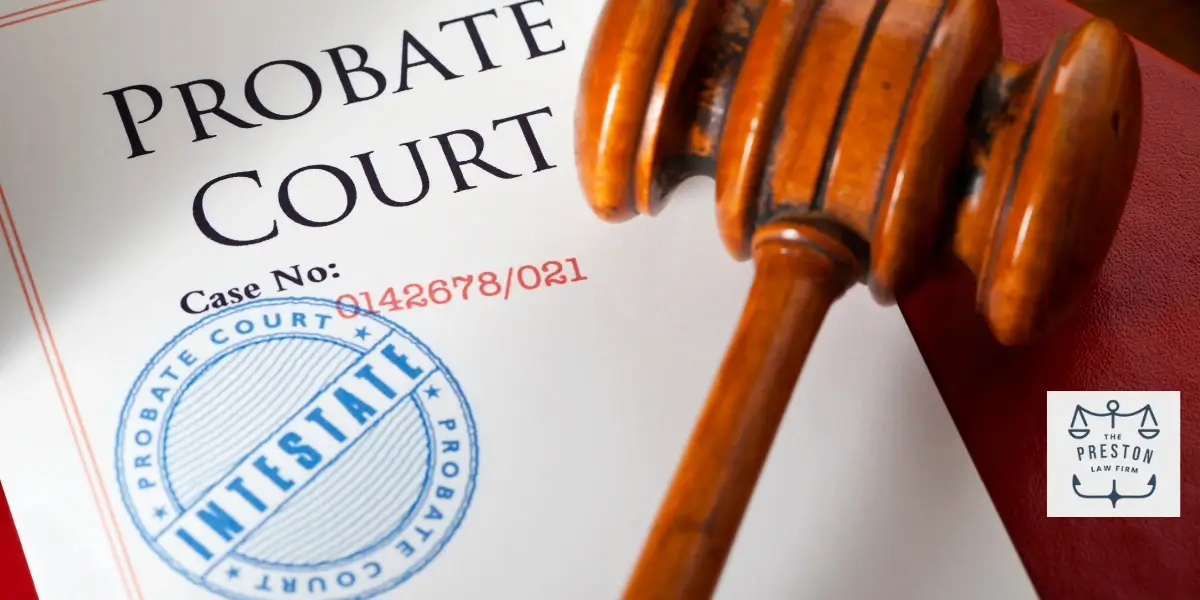|
|
Last
Modified on
Oct 09, 2025
When a loved one dies, dealing with probate can delay the grieving process. Probate is a costly, lengthy, and stressful process for those in charge of overseeing it. Many personal representatives and family members left behind find themselves asking, “How much does probate cost in Florida?”
Why Hire a Probate Lawyer?
Here at The Preston Law Firm, we’ve been helping Florida residents through some of the most difficult periods of life since 1986. Our team has a niche focus on estate law and understands the complex emotions involved in probate cases.
We’ve helped counsel over 3,000 clients with their cases, helping them understand state law and what’s required during the probate process.

What Is Probate?
Florida is an ideal place for many Americans to retire and enjoy their twilight years. Between 2023 and 2024, there were 71,282 probate cases filed in Florida. Probate is the court-overseen legal process that happens after someone passes away. The probate process must begin within 10 days of learning of a person’s death, and it can take months to complete.
It includes appointing a personal representative, either named in the deceased’s will or assigned by the court. The personal representative is in charge of handling the probate process.
Their responsibilities include:
- Gathering and preserving the deceased’s estate
- Using the estate to pay off any outstanding debts or taxes the deceased had
- Distributing what’s left over to the estate’s beneficiaries.
The Cost of Probate in 2025
The cost of probate in Florida varies, depending on what you need to file for. There are initial filing costs that can range from $41 to $400. These costs range depending on the size of the deceased’s estate and how detailed their estate plan was before they passed away.
Small costs throughout the probate process can include paying under $10 for various types of photocopies.
However, the majority of costs come from the initial filing and any attorney fees. If there is no named personal representative in the deceased’s will, a professional personal representative will have to be paid for their services.
Typically, these fees and an attorney’s fees are paid out through the deceased’s estate before their property is distributed to their beneficiaries.
During your first appointment with The Preston Law Firm, we can give you transparent pricing expectations so you aren’t blindsided at any point.
The Probate Process
In 2023, 22% of Florida residents were age 65 and older. These residents need to think carefully about their estate plan to help make probate easier for the loved ones left behind.
Probate in Florida only deals with probate assets. These are items that were owned only by the person who died or items that were co-owned but do not automatically pass to someone else at death. It’s a common point of confusion, but not all assets are subject to probate, which can sometimes simplify the process for certain parts of an estate.
To start probate, you must file papers with the clerk of the circuit court in the county where the deceased person lived. During this time, it’s important to hire a probate lawyer. They’ll be able to help ensure a smooth process. There are two types of circumstances that may happen to decide how probate will commence:
- If there is a will, it must go through probate before the assets can be passed on to their beneficiaries. A will is a legal document that appoints a personal representative and details how a person wants their belongings to be handled after they die.
- If there’s no will, Florida law decides who inherits. If the deceased was married with or without children, the spouse gets everything. If there’s no spouse, the estate goes to parents or siblings. If this doesn’t apply, the estate will go to distant relatives.

FAQs
Who Cannot Be a Personal Representative to an Estate in Florida?
There are a few reasons why someone can’t be a personal representative to an estate during the probate process in Florida. Those under 18 years old or convicted felons cannot be personal representatives. The person must be able to handle the duties, and if they’re unable to do so because of mental or physical limitations, they can’t serve as a personal representative. Almost anyone else can serve if they’re named in the will to do so.
What Is the Disposition of Personal Property Without Administration?
Disposition of personal property without administration is a legal process that allows loved ones to be reimbursed for paying the deceased person’s final expenses. Funeral costs up to $6,000 can be reimbursed, as well as medical bills from the last 60 days of a person’s life. However, prepaid funeral plans or any bills covered by insurance can’t be reimbursed. Prepaid funeral plans or bills covered by insurance do not count.
What Makes a Will Legally Valid in Florida?
A will in Florida must meet certain requirements to be considered legally valid upon a person’s death. You have to be an adult to make a will in Florida. You can handwrite the will or type it, but you have to sign it in front of two witnesses. Those witnesses will then sign the will in front of everyone present. These signature rules are strict. If you fail to meet them, your will won’t be followed after you die.
Does Florida Have Estate or Inheritance Taxes That Have to Be Paid After I Die?
Florida doesn’t impose any state estate or inheritance taxes on a deceased person’s property. This is fortunate for beneficiaries, as it means they won’t owe anything on the things they inherit. However, there is a federal estate tax. Luckily, this tax doesn’t apply to every individual item a person owns, but rather the total value of their estate. This simplifies the process. This federal tax also only applies to estates valuing more than $13.99 million in 2025.
Choose a Trusted Florida Law Firm Today
With over 50 years of combined professional experience, the team at The Preston Law Firm is here to help you navigate Florida’s probate process. Contact our New Smyrna office today to learn how we can help you. We understand how difficult the grieving process is and take our clients’ feelings into account when helping them during probate.
You don’t have to do this alone. Let us take care of the legal side of things so you can focus on your well-being.






